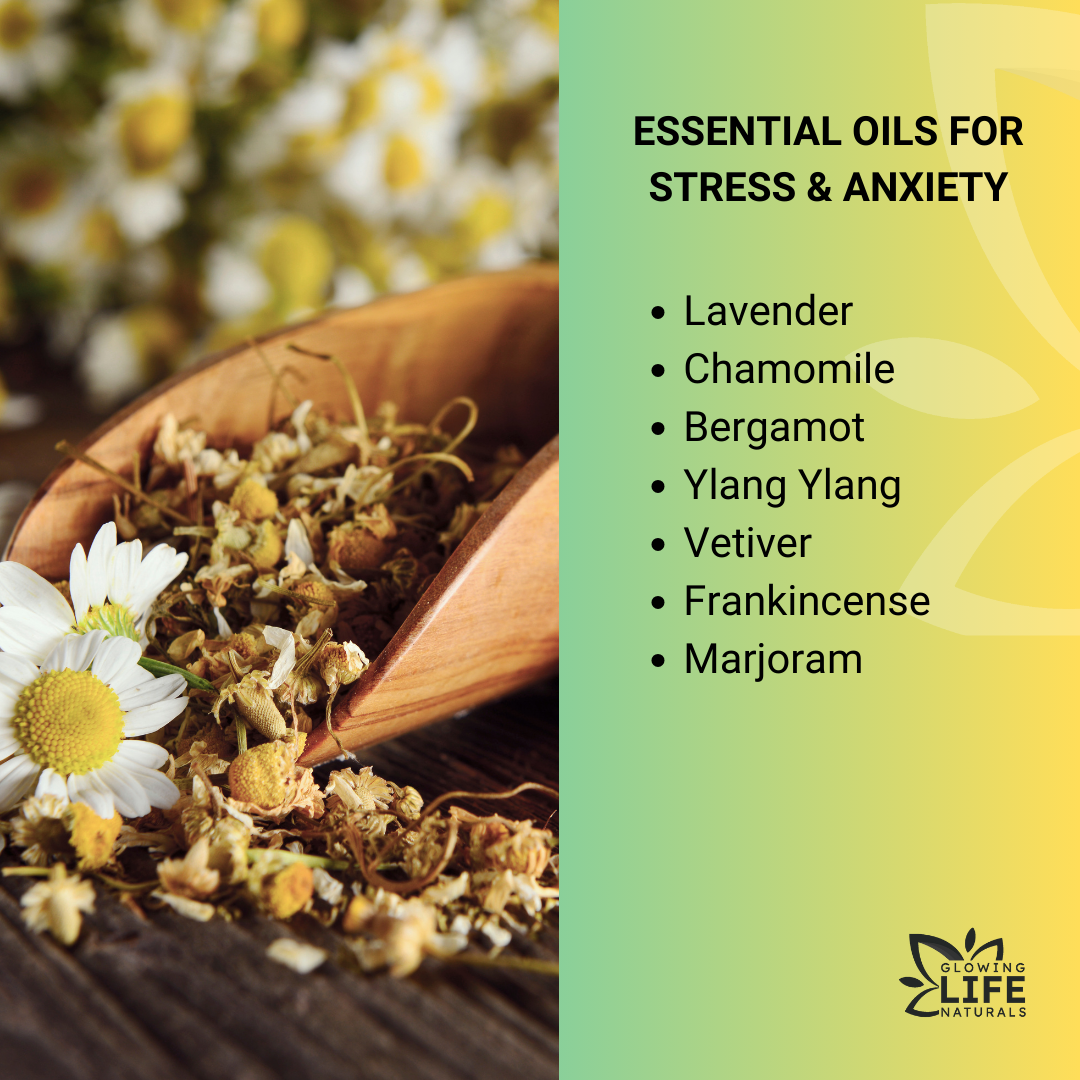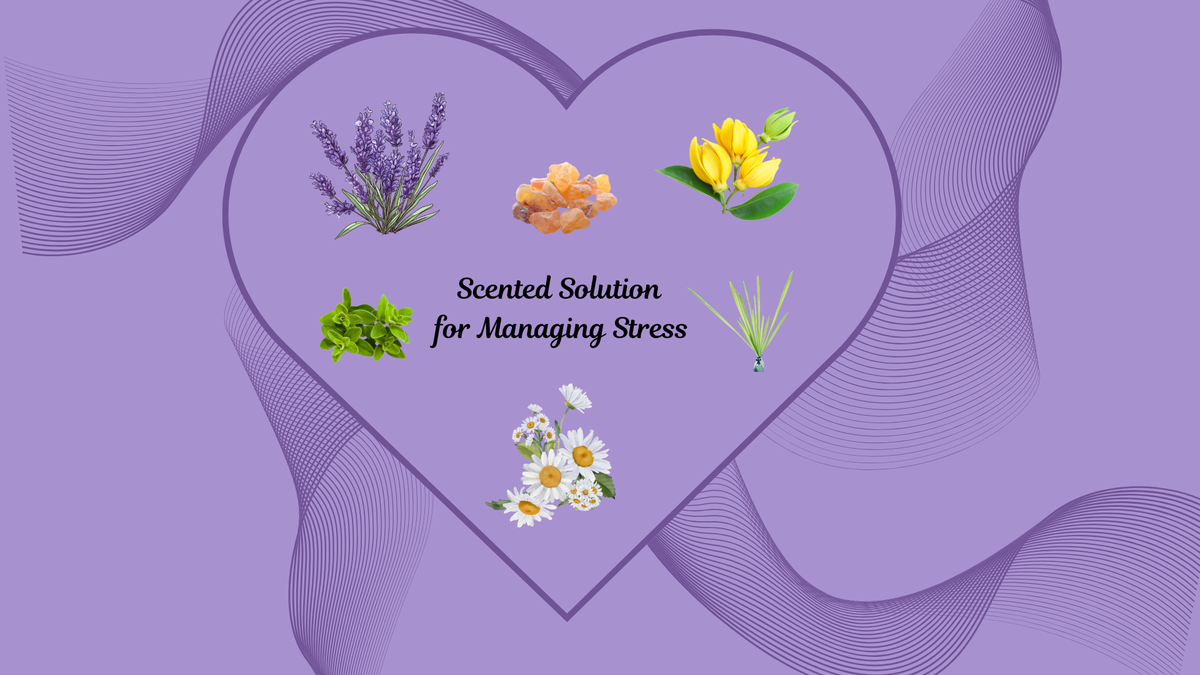Disclaimer, Privacy Policy, Terms of Service
Stress is an inevitable part of life, but it doesn't have to take over. With holistic wellness on the rise, essential oils have emerged as a powerful tool for managing stress and promoting relaxation. This guide explores how these potent plant extracts can help soothe your mind and body.
Key Takeaways
- Essential oils offer a natural remedy for stress relief and relaxation.
- Lavender, chamomile, and frankincense are particularly effective for stress management.
- You can enjoy aromatherapy through various methods: diffusers, topical application, and inhalation.
The Science Behind Essential Oils and Stress Relief
Inhaling essential oil aromas sends molecules into your olfactory system, interacting directly with the brain's emotional center, the limbic system. This triggers emotional responses, which is why scent can powerfully affect mood and stress levels. Studies show certain essential oils can significantly lower cortisol (the stress hormone). For example, research in the Journal of Alternative and Complementary Medicine found that inhaling lavender oil decreased cortisol in participants, reducing biological stress markers.
Top Essential Oils for Combating Stress & Anxiety
- Lavender: Known for its calming effects, lavender is often the go-to for reducing anxiety and promoting relaxation.
- Chamomile: Its soothing properties make it a favorite for promoting sleep and relaxation, helping to ease the mind after a stressful day.
- Frankincense: This earthy, uplifting scent has been used in spiritual practices for centuries and is recognized for its ability to alleviate anxiety and enhance meditation.
- Bergamot: With its fresh, citrusy aroma, bergamot is known to uplift mood and ease stress, making it a popular choice for those feeling overwhelmed.
- Marjoram: Often used for its calming effects, marjoram can help reduce feelings of tension and promote a sense of emotional balance. Its warm, herbaceous scent is comforting and grounding.
- Ylang Ylang: This floral-scented oil is celebrated for its ability to reduce stress and anxiety while promoting relaxation and emotional balance. It's particularly effective in lifting moods and enhancing feelings of joy.
- Vetiver: Known as the “oil of tranquility,” vetiver has a deep, earthy scent that can help ground and calm the mind. It's often used to promote a sense of peace and stability during stressful times.

Methods of Using Essential Oils for Stress
- Aromatherapy: Use a diffuser to disperse oil particles into the air for easy inhalation. Adding a few drops to a warm bath can also enhance relaxation.
- Topical Application: Dilute oils with a carrier oil and massage them into your skin for dual benefits—oil absorption and the stress-relieving effect of touch.
Safety Considerations and Best Practices
While essential oils are natural, they are highly concentrated and require careful handling:
- Dilution: Always dilute essential oils with a carrier oil before applying to skin to avoid irritation.
- Patch Test: Conduct a patch test to ensure no allergic reaction.
- Special Populations: Pregnant women, children, and individuals with certain health conditions should consult a healthcare provider before using essential oils.
- Sun Sensitivity: Some oils (like citrus oils) are phototoxic, which can cause skin reactions in sunlight. Always research each oil's safety guidelines.
Incorporating Essential Oils into Your Daily Routine
Start your day with invigorating oils like peppermint or citrus to awaken the senses. Keep a personal inhaler with a calming blend of lavender and chamomile for moments of stress throughout the day. At bedtime, use a diffuser with soothing scents like sandalwood or ylang-ylang to signal your body that it's time to relax and prepare for sleep.
The Role of Essential Oils in Meditation and Yoga
Enhance meditation and yoga with essential oils to promote tranquility and focus:
- Diffusion: Use frankincense during meditation to deepen relaxation.
- Topical Application: Apply grounding oils like vetiver to the feet before yoga to help stabilize and center yourself.
DIY Stress-Relief Blends with Essential Oils
Create your own blends to suit your preferences and stress triggers:
- Daytime Stress Relief: Mix lavender, lemon, and peppermint. Diffuse or dilute for topical application.
- Nighttime Comfort: Blend chamomile, bergamot, and marjoram for a soothing pre-sleep ritual.
The Impact of Essential Oils on Sleep Quality
Poor sleep can worsen stress, creating a cycle that essential oils can help break. Oils like lavender, cedarwood, and marjoram are known for sedative properties, aiding in better sleep. A study in the Journal of Clinical Sleep Medicine found that participants who used lavender oil at bedtime reported better sleep quality, highlighting its potential for reducing stress-related sleep issues.
Combining Essential Oils with Other Stress-Management Techniques
Pair essential oils with techniques like deep breathing, progressive muscle relaxation, or guided imagery for a holistic approach to stress management. For instance, practice deep breathing while inhaling lavender oil to enhance relaxation and help anchor a calm response.
Summary
Essential oils offer a natural, customizable way to manage stress. By understanding aromatherapy principles and following safety guidelines, you can incorporate these oils into your daily routine for a more relaxed, balanced life. Remember to consult a healthcare professional if you have concerns and always use essential oils responsibly for an optimal experience.
FAQ Section
Q: Can essential oils treat anxiety or depression?
A: Essential oils can help manage stress symptoms and promote relaxation, but they should not replace professional treatment for anxiety or depression. Consult a healthcare provider for proper diagnosis and treatment.
Q: How often can I use essential oils for stress relief?
A: Essential oils can be used daily for stress relief, but it’s important to follow recommended guidelines to avoid overexposure or sensitization.
Q: Are any essential oils best avoided for stress management?
A: Most essential oils are beneficial for stress, but some can be stimulating and increase stress for some individuals. Choose calming oils and pay attention to how your body responds.
